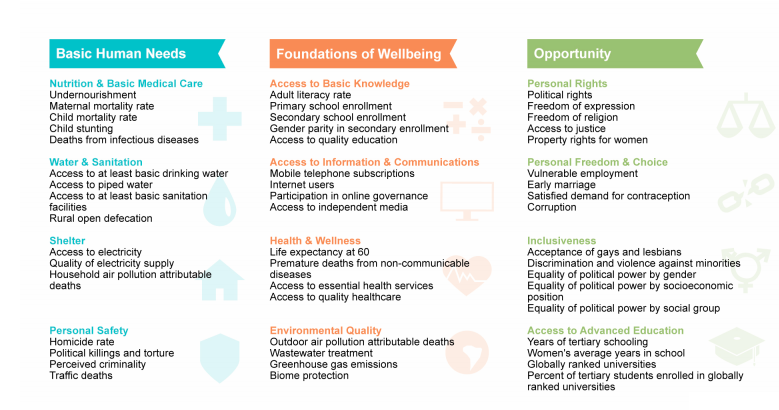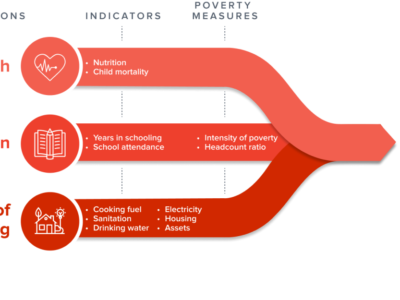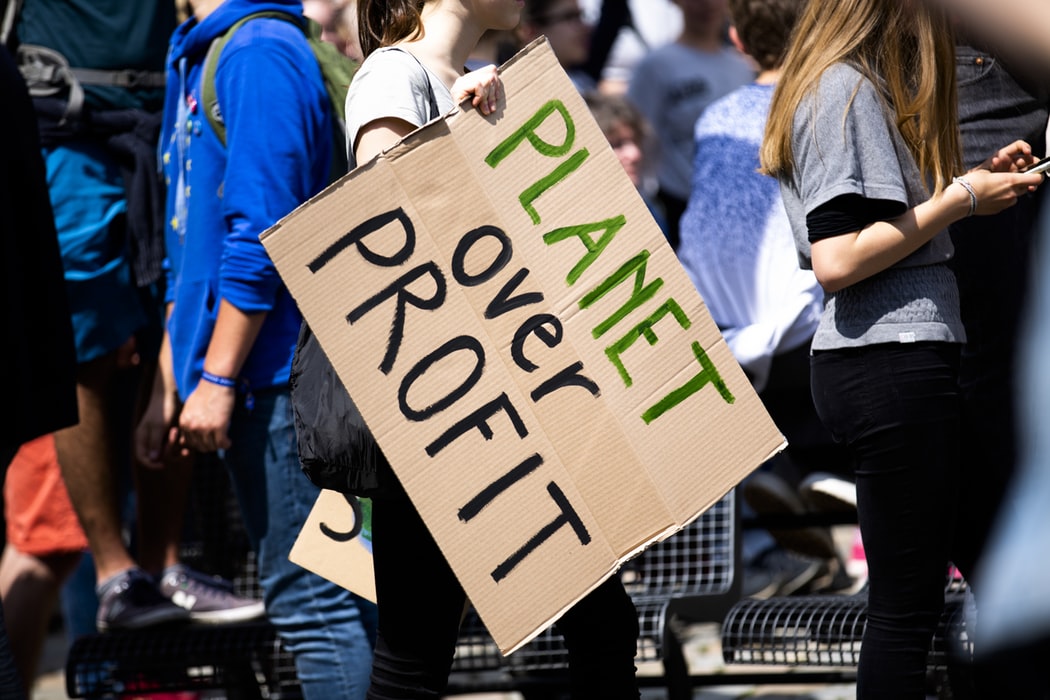The Social Progress Index is an index used to aggregate the social and environmental indicators of different countries. Basically, the index is used to measure a country’s social and environmental performance. These are based on three dimensions of social progress namely Basic Human Needs, Foundations of Wellbeing, and Opportunity. The index provides a comprehensive picture of the lived experience of more than 7 billion people across 163 countries.
The Social Progress Index (SPI) is similar to the Human Development Index but not exactly the same. The index is created by Social Progress Imperative. They define social progress as the capacity of a society to meet the basic human needs of its citizens, establish the building blocks that allow citizens and communities to enhance and sustain the quality of their lives, and create the conditions for all individuals to reach their full potential. The index also captures outcomes related to all 17 Sustainable Development Goals.
What the Social Progress Index is about
Social Progress Index was created to measure more than just the traditional measurements of success like income and investment. The index contains a measurement of 50 indicators of social and environmental outcomes. This is to create a clearer picture of what life is really like for everyday people. Within each dimension, there are four components that further divide the indicators into thematic categories.
The ultimate goal of the index is to empower leaders and change-makers from business, government, and civil society by providing them with the data they need to understand where their actions will have the greatest impact. The index is divided across three broad dimensions of social progress: Basic Human Needs, Foundations of Wellbeing, and Opportunity.
Dimensions of the Index

The Social Progress Index embodies a large body of research on moving “beyond GDP” and has identified the social and environmental elements of the performance of countries.
Basic Human Needs assesses how well a country provides for its people’s essential needs.
Foundations of Wellbeing measures whether citizens have access to basic needs for their wellbeing. It also measures a country’s protection of its natural environment: air, water, and land, which are critical for current and future wellbeing.
Opportunity measures the degree to which a country’s citizens have personal rights and freedoms and are able to make their own personal decisions as well as whether prejudices or hostilities within a society prohibit individuals from reaching their potential. Opportunity also includes the degree to which advanced forms of education are accessible to those in a country who wish to further their knowledge and skills, creating the potential for wide-ranging personal opportunity.
Top Performing Countries on the Social Progress Index
Norway ranks first in the world on social progress with a score of 92.72. This is followed by Denmark which has a score of 92.11. The other countries on the top 10 are Finland (91.89), New Zealand (91.64), Sweden (91.62), Switzerland (91.42), Canada (91.40), Australia (91.29), Iceland (91.09), and the Netherlands (91.06)
2020 Social Progress Index Scorecard for Nigeria
Nigeria, with a score of 51.31, is currently ranked 136th out of 163 countries.
For more information about the Social Progress Index, see the following
WATCH: What the Index can Reveal about your Country
READ: Frequently asked questions about the Index






